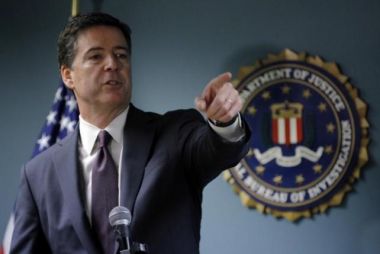ISIS now a bigger threat to US domestic security than al-Qaeda, says FBI chief

The Federal Bureau of Investigation (FBI) now considers the Islamic State as a greater threat to American domestic security than al-Qaeda.
During the Aspen Security Forum in Washington on Wednesday, FBI Director James Comey admitted that ISIS—or ISIL as US officials call the group—has developed a social media campaign which has served as a recruitment strategy sophisticated enough to stir a real concern in the agency.
"What worries me most is that ISIL's investment in the social media—which has been blossoming in the last six to eight weeks in particular—will cause a significant increase in the number of incidents that we will see," Comey said.
"That's what I worry about all day long," the FBI chief said, adding that ISIS has already influenced a significant but unknown number of troubled Americans through a year-long social media campaign, according to Newsweek.
Through several Twitter handles, ISIS has been brain-washing over 21,000 English-language followers around the world including an identified number of Americans who are being told that even though they cannot go to the Middle East, they can "kill where they are."
The US government has tracked down dozens of Americans, with ages ranging from 18 to 62, who have traveled to Iraq or Syria to fight with ISIS, according to an ABC News report.
Comey, in another interview with CNN, also raised concern about encrypted communication software that ISIS recruiters have been using, which prevents access by FBI and other American security agencies.
"We are trying to find needles in that haystack. And a lot of those needles are invisible to us either because they are communicated or just because they have communicated in a place that we can't see them," Comey said, according to CNN.
"And knowing there are needles out there that you can't see is very worrisome," he added, underscoring that this has made ISIS more dangerous than al-Qaeda.
Comey issued the statement after the FBI arrested "a significant number" of "radicalised people," who were planning attacks related to the July Fourth holiday in the past eight weeks.
Jeh Johnson, secretary of the Department of Homeland Security, clarified that the imminent threat comes from the potential smaller-scale attacks within the United States, giving the recent shooting in Chattanooga as an example.
"Abdulazeez was not on our radar and I wouldn't consider Chattanooga a high-risk area," Johnson said at the security forum, according to CNN.
But Comey said it is still too soon to say how Muhammad Youssef Abdulazeez, the Chattanooga gunman who killed five US servicemen last week, became radicalised.











